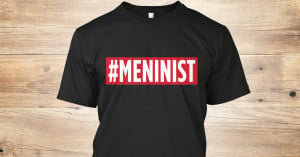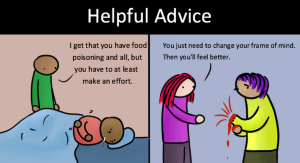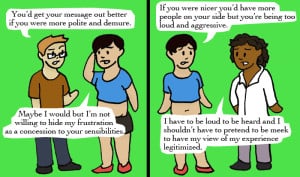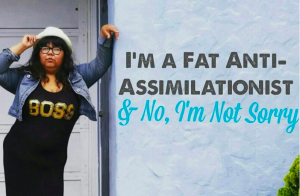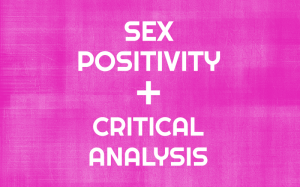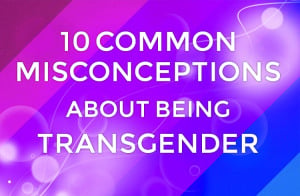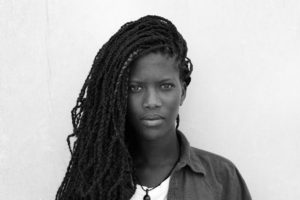
Close up black and white portrait of a person staring deeply into the camera, posing on a white background.
I’m concerned about good intentions. They’ve been scaring me more and more recently.
I am class transitioning. I grew up in poverty and over time, acquired social capital that would mark a shift in my experiences.
This shift was made possible by the good intentions of many people and organizations around me, starting with my parents. My parents wanted a better life for me than what they had managed for themselves.
And they defined “better” as many do: a US white middle class heteronormative life. They didn’t know much about how to make that life happen, but their best guess was education. They made it clear to me from the moment I started kindergarten: Education is how you escape poverty.
This idea was at the heart of many of the good intentions that facilitated my class transition. I was encouraged to go to a good school. I received scholarships for high school students who had beat the odds to be college eligible.
Today, the middle class is a group with which I identify – and a group that makes me uncomfortable. One source of my discomfort is good intentions. I have been feeling concerned, because I have been questioning my own.
I told myself that the purpose of this race towards hegemonic success would be return to my community and help. I had the best of intentions. I still very much do.
It’s tough to be critical of our good intentions. Our good intentions are where we sometimes turn for a sense of our character. They are reassurance that things might be okay and we might be part of the reason why. It can feel frustrating to see that our good intentions aren’t enough – or are even problematic.
But being part of the solution begins with accepting that we are all implicated. These oppressions exist because we all participate in their construction. The following mantra helps me stay open to and critical of my participation: Knowing is an ongoing process. Knowing requires the ability to balance many moving and contradictory parts.
Our good intentions will get better when our movement originates from critical reflection. In Anna Kegler’s recent article, she compared this critical reflection to taking medicine. Kegler explains that medicine is meant to heal you. No one said it would taste good, but nothing tastes better than getting better.
So, I have a few questions about the things we say when we mean well, the actions we take when we feel we’re doing our best and want to be on the right side of history.
Here are three good intentions that concern me:
1. ‘I Want to Attend ‘Good’ Schools So I Can Return to My Community to Help’
Education often lies at the center of our good intentions. I feel overwhelmed sometimes observing the world around me. I see how much I don’t know and how often I’ve moved from a place of ignorance. Learning is essential to any substantive change we want to enact in our own lives and in the world.
Yet, when I think of studying, I think of spaces in which I never seem to feel comfortable. I think of academics who stand at a distance. I think of feeling unintelligent or insufficient. Research and study can be inaccessible, elite activities, reserved for the wealthy and white.
But study is crucial to the survival of any people. We all find ways to observe and understand what’s going on around us. We process new information about our lives every day to survive. We all need study and we all engage in curious, intellectual pursuit.
Many times we use “good education” as a metaphor to talk about a desire to act from an informed place. I believe it’s important for our movement to originate from a process of learning. And there are many ways of knowing and of being knowledgeable. We respond to formal education as if it is the best, but it tends to leave a lot to be desired.
Much of my education has been a struggle to resist my erasure in curriculum I was presented. I never felt I could trust what I learned in school. There I was in class and nowhere to be found in my textbooks. My absence was the first lie.
There’s not much I feel I know these days, but I know for sure that I want to stay critical of the “knowledge” I “acquire” in school. The movement in schools – testing, “passing,” standardized tests, maps, flags, sit down, listen, deposit model, the bootstrap narrative – is violent. I have felt this violence as a student.
Sometimes, I would sit in class and wonder how what I was learning would help me serve my community. When I would return to the Bay Area for vacation, I felt less comfortable in old spaces. I would ask myself, “How have I come to feel distant from the communities I imagine living for?”
In school, I learned to stay in my lane. I learned that raising doubts about official curriculum often brought ridicule. Since I was rarely in the curriculum, this meant that insisting on my existence has usually carried negative consequences for me in academic spaces.
I am hesitant to believe the time I spent biting back my words and spitting back what I was taught prepared me to serve my people.
2. ‘I Want Power and Prestige So That I Can Enact Change from the Top Down’
Growing up a young black woman in poverty, I lived a struggle I had no power in and in a body that rendered me invisible. I didn’t have the power needed to change my circumstance. I got used to being unheard. I think “power” and “prestige” were metaphors for wanting to feel more in control of my life.
I sought education because it seemed like the way to achieve that agency, which we justify denying the poor and “uneducated.” Ideology in the United States tells us it’s something the poor should “earn” and if they don’t, they deserve their lot. They didn’t work hard enough.
And what is their lot? That which no one actually deserves: poverty, violence, instability, prison.
I had the opportunity to sit in on a small discussion with Michelle Alexander shortly after the release of The New Jim Crow. The attendees were academics, students, prison guards, those who had served time, and community members. The academics dominated the conversation.
Towards the end of the discussion, one person in the room who had served several years in prison, spoke: “I’m in a room with many intelligent people. But it seems to me everything you’re saying, prisoners have been saying for decades.”
I was left to wonder about whose experiences and opinions register as legitimate, whose humanity is recognized, and whose is strategically denied.
This left me questioning my own pursuit to be heard. A good listener has to be able to receive knowledge from all different types of bodies. Many of the oppressions we construct make that almost impossible. Prejudices prevent us from listening to and following those who know the injustices of our systems best.
If study is survival, it follows that researchers play important roles in our communities. They find and present knowledge our communities need to move from an informed place. I believe what academics do should empower the people’s voice.
Instead, I find many using inaccessible language, seeking accolades from the elite, and presenting community knowledge as their own. And late. The top down model will leave us decades behind schedule. Thinking of change as hierarchical damages the heart of how it urgently needs to happen.
In some ways, I understand my desire for power and prestige. I lived much of my life with the assumption that I was undeserving. I wanted to speak and be heard. The desire to be recognized and acknowledged by the outside world is natural.
But we don’t have to seek that recognition by trying to “get ahead.” Getting ahead requires leaving others behind. We can apply more radical definitions so that our powerful lives aren’t rooted in the domination of others.
3. ‘I Want to Get Rich So I Can Give to Those Less Fortunate’
My dreams of getting rich come from a desire to see myself and my community with more control over our material lives. Many of us have less than we need to comfortably survive.
If resources were distributed more equitably, I think there would be enough to go around. We wouldn’t feel like we had to hoard, or “get rich,” to survive and to do for others.
And we wouldn’t have to resort to charity, or “giving back.” Everyone should have the material resources they need to survive. I don’t think it’s fair for those with resources to feel “charitable” while those without are left uttering thank yous. I do not believe the poor should have to depend on charity for their basic human rights.
But my class transition was made possible through the “charity” of others. One of the scholarships I received as a high school student is for young people who have overcome great odds to be college eligible. When I was a student, the scholarship hosted an annual gala at a very upscale hotel to raise some of its funds.
I remember my first. Students mingled with wealthy attendees who got to shop for a good cause. While the attendees ate dinner, stories of the most difficult moments of students’ lives was used as entertainment.
I felt a violence that I couldn’t then describe. I was uncomfortable because I had to play a part to appease upper middle class sensibilities. I felt angry that they got to have fun giving resources they had hoarded to people to whom I felt they belonged.
We are too comfortable with the assumption that those who hoard resources know best how to offer a negligible amount back to those in need.
I have been the recipient of a lot of “charity.” I feel gratitude sometimes. I look at that feeling now with the same skepticism that I look at good intentions.
Paulo Freire reminds us that true charity is fighting systems that create its need. True charity is solidarity. Being in solidarity with the marginalized means you don’t seek their gratitude, because it is not owed to you. You are aligned with them because you recognize your liberation is tied to theirs.
I believe we need to give and share with our communities. I believe we can do it in more empowering and equitable ways. When I encounter my gratitude now, I use this mantra: Thank you. But, no thank you.
***
As a class transitioning person of color, I don’t want to have to conform to be recognized or to have my experiences validated. That would mean abandoning a lot of what I feel makes me who I am. I do not want to mimic hegemonic culture to be fully seen and heard.
I question the lifestyle towards which we are taught to strive: a white middle class lifestyle in the imperialist center. I question the “success” I’ve been chasing and the excuses I’ve used to justify my pursuit.
I question limiting my definition of success to my national context. I feel that success in the traditional sense isn’t available to me as a black queer being. And I find myself at the threshold of a middle class whose existence depends on an oppressive class system and that is rapidly disappearing anyway.
And as for my good intentions. I ask myself: What have I been working towards? What would revolutionary success look like? How can I live a life that doesn’t require me to be silent in the face of marginalization? How has the path I’ve traveled prepared me (or not) for the causes for which I claim to live?
I am concerned about the good intentions that brought me to this point. I wonder if they could have been better. Thus, I take medicine, pinched lips, breathe, swallow. So that they might.
[do_widget id=’text-101′]
Sam Carter is a black being, first generation, child of an immigrant and two parents who never went to college, a revolutionary artist, and a survivor. Follow Sam on Twitter @computercavemen or visit their website.
Search our 3000+ articles!
Read our articles about:
Our online racial justice training
Used by hundreds of universities, non-profits, and businesses.
Click to learn more
Most Read Articles
- « Previous
- 1
- …
- 30
- 31
- 32





